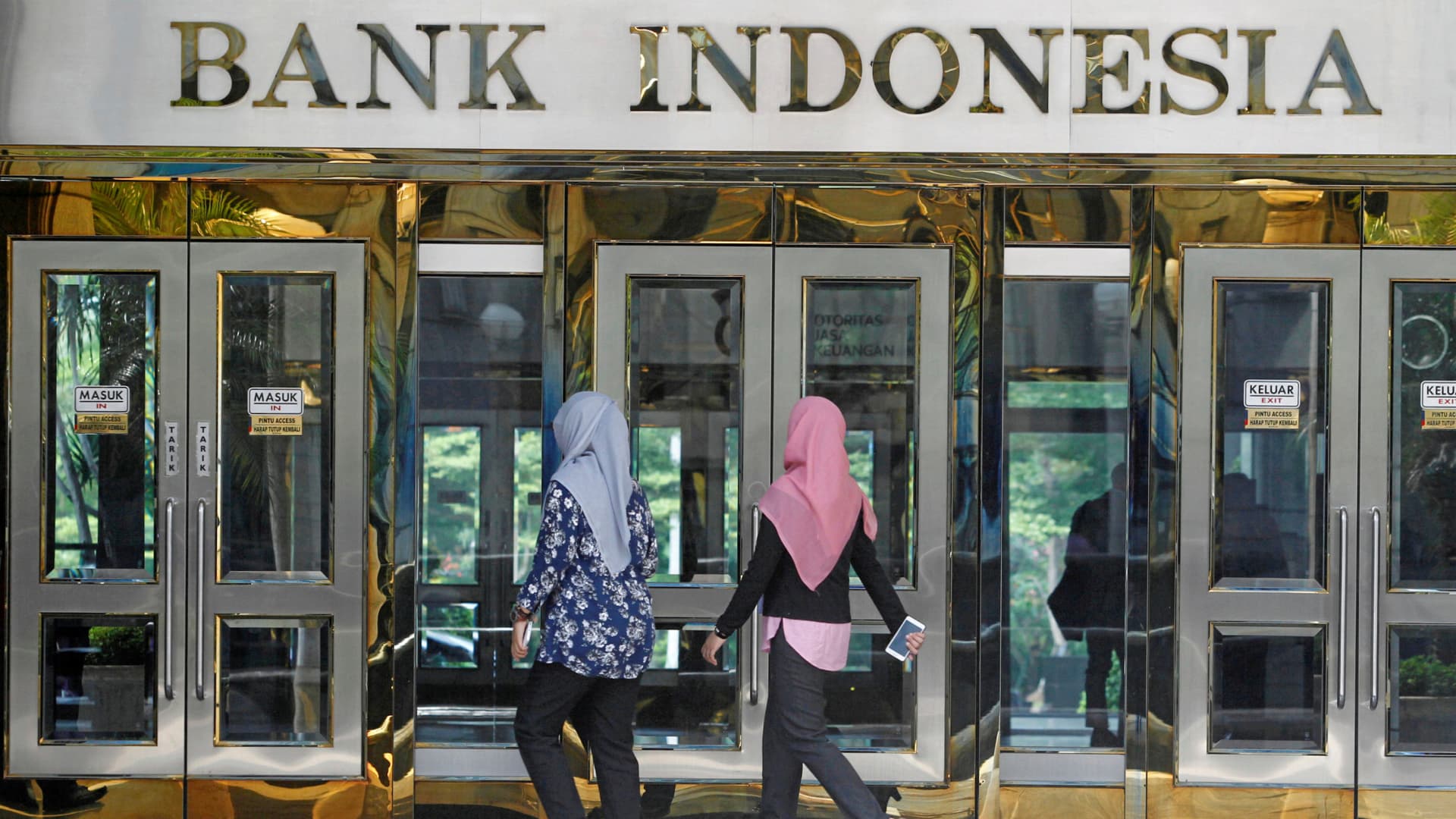Indonesia is taking steps to make its economy more resilient so it can withstand global shocks like inflation, especially from the United States, said Finance Minister Sri Mulyani Indrawati.
As the world’s largest economy, what the U.S. does has strong implications worldwide, including Indonesia, said the minister.
To fight inflation, the U.S. has hiked interest rates, which has affected capital outflows because of the strengthening of the dollar, Sri Mulyani told CNBC’s “Street Signs Asia” on Thursday.
In light of that, the finance minister said, Indonesia is putting more effort to “increase our resiliency.”
That includes “making sure first that the financial sector is healthy and strong for this interest rate movement. Second, that the real sector economy is going to be also resilient in order for them to absorb this shock,” said Sri Mulyani, who is attending the Group of 20 meeting of finance ministers and central bank chiefs in India this week.
In early February, the U.S. Federal Reserve raised its benchmark interest rate by a quarter percentage point and gave little indication it is nearing the end of this hiking cycle.
Inflation mellows
Unlike the United States, where inflation remains stubbornly high, Indonesia’s inflation slowed in January.
Headline consumer price index, a key indicator of inflation, dropped to 5.28% year on year in January from 5.51% in December, according to government data.
Stripping away volatile food and energy prices, core inflation came in at 3.27% in January year on year, dropping slightly from 3.36% in December, data showed.
Last week, Indonesia’s central bank held its seven-day reverse repo rate at 5.75%, pausing after six consecutive hikes. But inflation still remains well above Bank Indonesia’s target range of between 2% and 4%.
Still, Indonesia has done well in coordinating its fiscal and monetary policy tools to contain inflation and maintain growth, said Sri Mulyani.
She added the government is also supporting the central bank to make sure inflation remains low so that it doesn’t hurt the purchasing power of its people.
“We also know that the source of inflation is not from the central bank, from the money circulation or money supply. We also see that the inflation is coming from some supply side. That’s why we addressed this issue,” said Sri Mulyani, stressing inflation will moderate this year.
Strong growth
Despite the global slowdown, Indonesia’s economic growth remains strong as domestic demand continues to improve, the minister added.
“Last year, we had a very good year in terms of growth. We are 5.3%. I think this is also … the highest among the G-20 as well as the ASEAN countries,” said Sri Mulyani.
This year, growth is coming from domestic consumption and investment, which “are all recovering very strongly,” she added. “Consumer confidence is also very high.”
